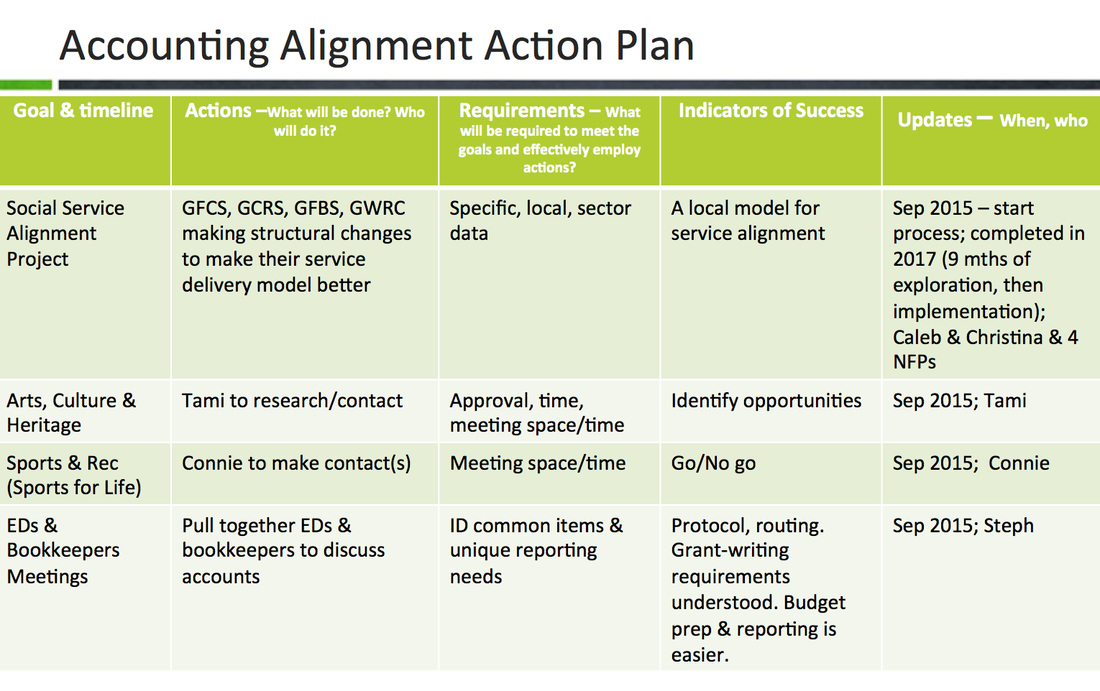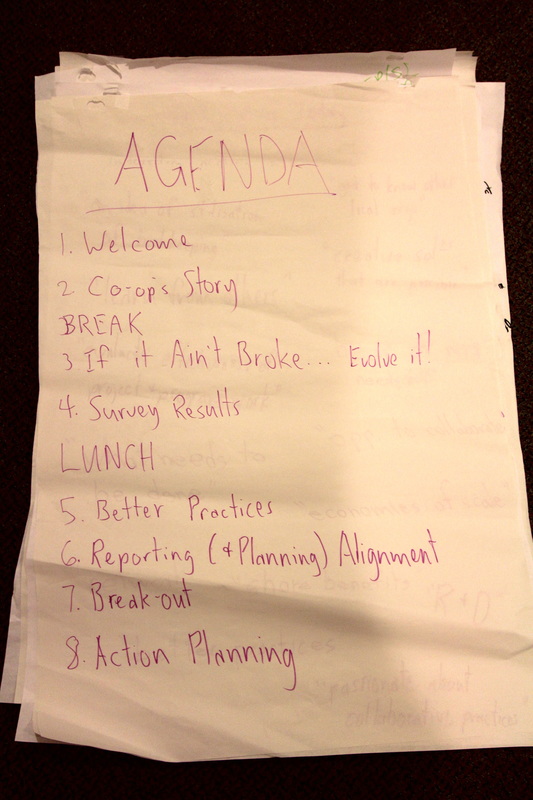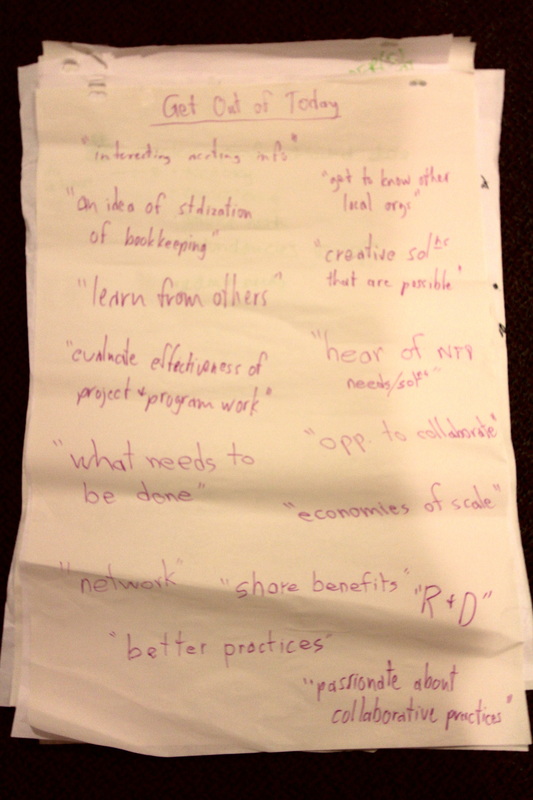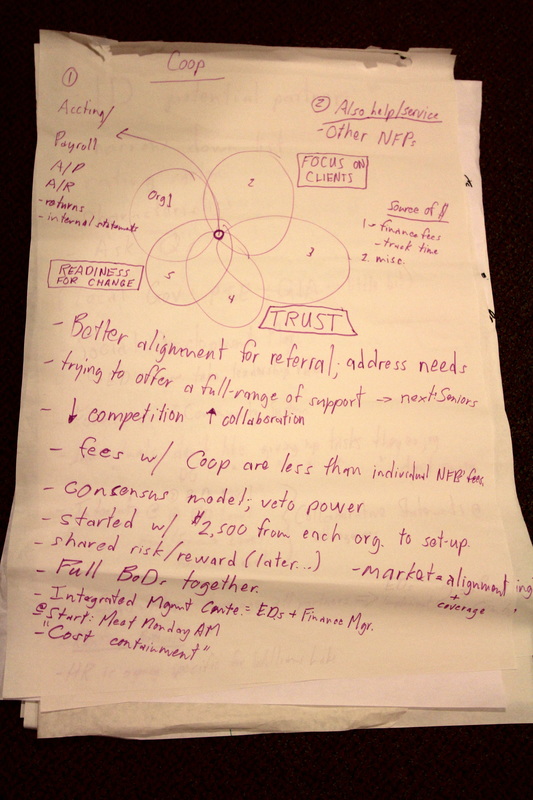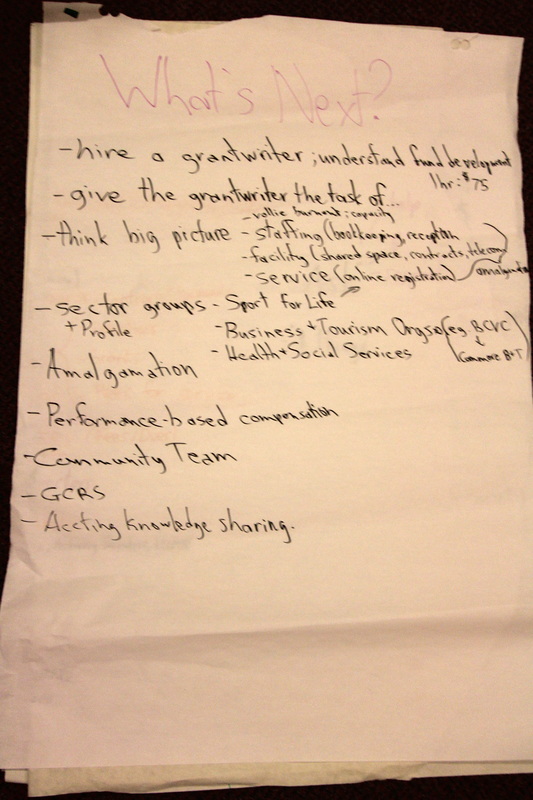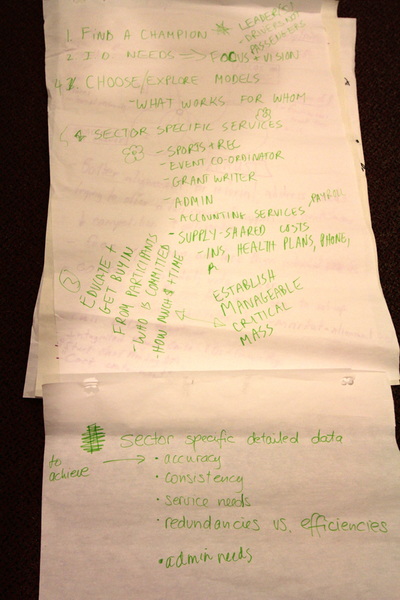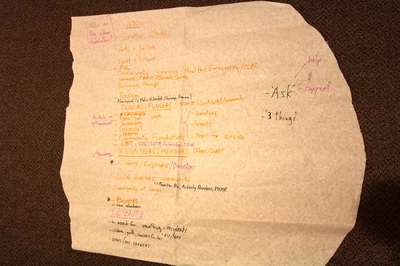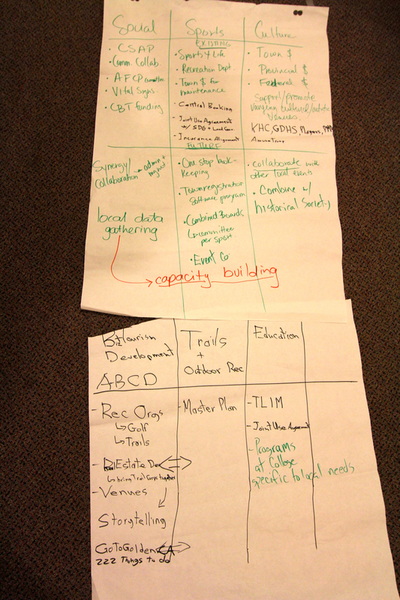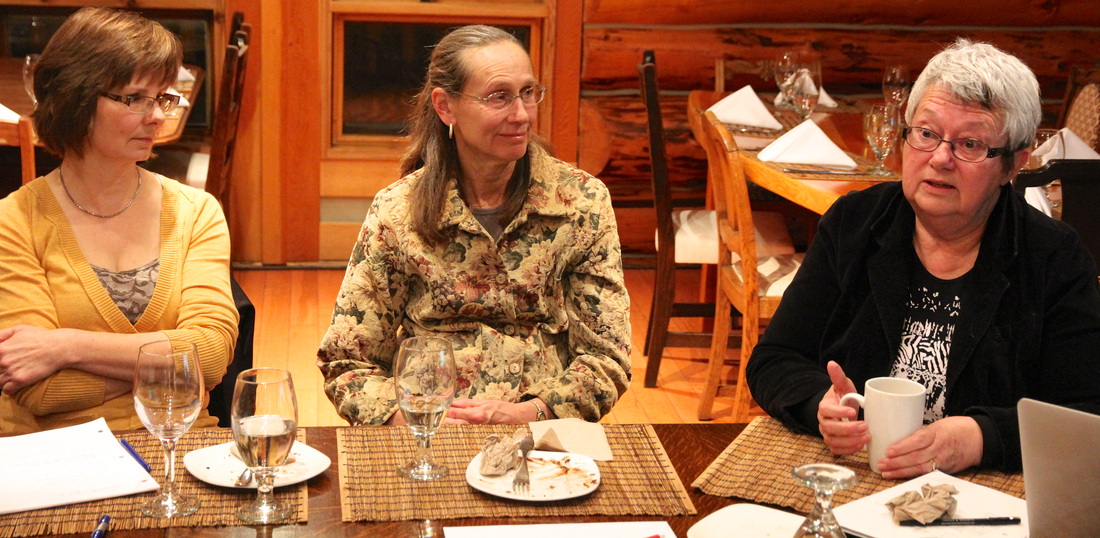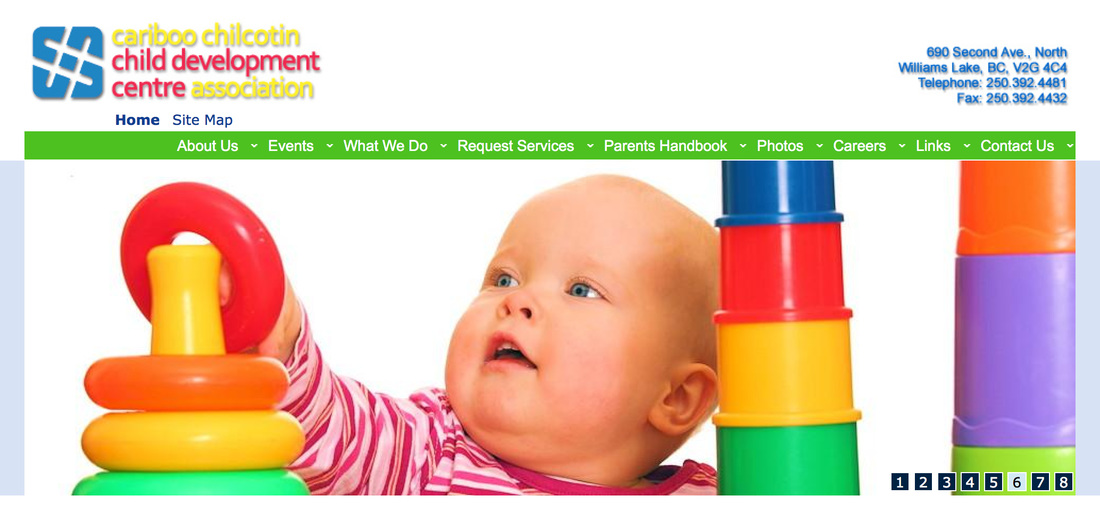Non Profit Accounting Alignment
Do non profits have to work independently?
How much do local non profits spend on rent, on telecommunications?
Do non profit staff have to be generalists or can they be specialists?
While this started as an event for local Health & Social Service organizations, we had interest from local Sports & Rec organizations, too. So we opened it up to all community organizations that want to do better, together.
Nancy Gale & Susan Stoddart from Williams Lake shared their story of the Central Interior Community Services Coop (CICSC), which has brought 5 organizations together for the betterment of each, their staff and the entire community that they serve. Participants examined this case study and brought their own experiences and challenges with the goal of creating an action plan for themselves, their groups and the community with respect to common challenges in accounting, payroll, grant writing and reporting.
This session was targeted to non profit bookkeepers, coordinators, managers, and board members. Everyone was welcomed to attend. Thirteen participants, representing a variety of non profits, charities, businesses and local government attended day-long session.
Date:
Wednesday May 27 – 9:00AM – 4:30PM, Civic Centre.
How much do local non profits spend on rent, on telecommunications?
Do non profit staff have to be generalists or can they be specialists?
While this started as an event for local Health & Social Service organizations, we had interest from local Sports & Rec organizations, too. So we opened it up to all community organizations that want to do better, together.
Nancy Gale & Susan Stoddart from Williams Lake shared their story of the Central Interior Community Services Coop (CICSC), which has brought 5 organizations together for the betterment of each, their staff and the entire community that they serve. Participants examined this case study and brought their own experiences and challenges with the goal of creating an action plan for themselves, their groups and the community with respect to common challenges in accounting, payroll, grant writing and reporting.
This session was targeted to non profit bookkeepers, coordinators, managers, and board members. Everyone was welcomed to attend. Thirteen participants, representing a variety of non profits, charities, businesses and local government attended day-long session.
Date:
Wednesday May 27 – 9:00AM – 4:30PM, Civic Centre.
|
Learn More about the organizations in Williams Lake:
Please find the link for the Cariboo Chilcotin Child Development Centre Association (CCCDCA) here and Central Interior Community Services Cooperative (CICSC, aka "Coop" for short) backgrounder below. |
Pre-Event Survey & Presentation:
We asked invitees and participants to complete this survey in advance so that we could tabulate the results before the May 27th meeting. This knowledge fed into our presentation, discussion and action plan below. |
|
| ||||||
The group learned that a focus on clients, trust and a high readiness for change were some of the key ingredients in the success of the Coop in Williams Lake. While the idea of hiring a grantwriter was floated, collectively, the group was prepared to move forward with the actions outlined above.
Nancy broke the participants into 3 groups and had them work through these 3 questions:
The images below include the notes that each group took:
- What are the opportunities/models?
- Who are the other stakeholders?
- What’s next?
The images below include the notes that each group took:
Agenda:
The Agenda for the upcoming workshop on non profit accounting & alignment can be found below.
1. Welcome & Introductions
2. Nancy & Susan's Story (1 hour)
Central Interior Community Services Coop (CICSC), where people can focus, do what they are good at and streamline operations.
Break (10 min)
3. If it Ain't Broke… Evolve It! (1 hour)
An overview of Challenge, Opportunities & Possibilities in Golden & Area A with respect to resources with respect to HR, $ and space (framing the continuum). There is no new money!
4. Round table Discussion of Accounting Challenges: (45 min; seeded from survey responses)
Document and pull out themes and unique organizational issues
Lunch (provided)
5. Better Practices/Processes Discussion: (45 min)
Define Administration, Project v. Program Management, building costs, data collection, technology, marketing, fund development expenditures. Who completes grant applications; posting sheets? How do you distribute costs (e.g. program contribution, etc.)? And how does this change between core and project funding?
6. Reporting Alignment: Internal, External, Sector and Community (45 min)
How does our treatment of individual line items effect community and collaboration? (Revenues, expenses, common items)
7. Issues & Potential Actions Break Out Session: (1 hour; action plan sheets (goal & objective, etc.)
A. Executive Directors, Managers, Coordinators & volunteer Directors
B. Accounting Staff
8. Action Plan (30 min)
What are the priority issues?
What are the possible solutions?
What is the best solution?
Who is going to do what by when?
9. Wrap up
May 28th:
Nancy & Susan are also available to meet on the morning of May 28 morning to meet with individuals/orgs/sub-groups – whoever would like to talk about their unique challenges (9am – 11am)
Facilitators' Bios
Nancy Gale, Executive Director, Caribou Chilcotin Child Development Centre Association (CCCDCA)
250-392-4481; [email protected]
Nancy Gale is the Executive Director of the Child Development Centre and a born “scavenger” of ideas. She has an insatiable appetite for new ideas and learning. Further, she believes that a penchant for continuous learning and an unwavering faith in the ability of human nature to effect change through cooperation.
Of equal importance to her “scavenging” is the need to do something with the information/knowledge – talk about it, act on it, take notes, consult, advise, teach, apply it, or share it with others. Her preference is to review print materials - books, magazines, journal articles, course materials - and then take the concepts or ideas and apply them to a real life situation. The doing or the physical engagement with the information gives the writer the chance to “try it on for size”, test the validity of her own assumptions, add and discard thoughts, ideas, and information, and create a new mental model.
For the most part the presenter is pragmatic. She is good at understanding others, recognizing problems, and generating ideas and solutions. She likes to view situations from different perspectives and then weave relationships into a meaningful whole.
Susan Stoddart, CPA, CGA, Business Manager, Central Interior Community Services Coop (CICSC)
250-392-4489 x.2003; [email protected]
After working as a Registered Professional Biologist for both government and private industry, Susan Stoddart started on a new career path in accounting. She began working for the Central Interior Community Services Co-op in 2006 while she still a CGA student and when the Co-op was in its infancy. After earning her CGA designation in 2009, she became the Co-op’s Manager of Business and Financial services. Working for the Co-op is a great fit for her as it allows her to work outside of the “for profit” world in a flexible, constantly changing environment. This keeps her motivated, interested and challenged but also able to keep up with her busy family.
"The success of the Central Interior Community Services Cooperative is a function of many interlocking variables:
The key challenges facing the Cooperative include partnership maintenance and communication, trust, continuous improvement, risk management, decision-making, and sustaining competitive advantage. The central purpose of the partnership approach was to make real and positive differences to the services which local people receive and focus on how to improve service standards, rather than drive down costs. The collaborative or cooperative model requires partners to cultivate long-term, high-trust relationships, to understand each others goals and to share information. The key ingredients are: common aims, compromise, communication, democracy, equality, trust and determination.
We formed the cooperative to accomplish things by working together that we couldn’t if we worked alone, as individual agencies. The Coop provides the clearest evidence of what agencies can accomplish by working together. By giving up some autonomy in financial management, purchasing and training decisions, the member agencies gain cost savings that allow them to shift limited revenues and staff resources to addressing problems of greatest concern locally. In the process, we have all increased our chances of being able to remain independent in the future. Finding the right balance between collaboration and independence is a key challenge for social service agencies in diverse, rural communities."
The Agenda for the upcoming workshop on non profit accounting & alignment can be found below.
1. Welcome & Introductions
2. Nancy & Susan's Story (1 hour)
Central Interior Community Services Coop (CICSC), where people can focus, do what they are good at and streamline operations.
Break (10 min)
3. If it Ain't Broke… Evolve It! (1 hour)
An overview of Challenge, Opportunities & Possibilities in Golden & Area A with respect to resources with respect to HR, $ and space (framing the continuum). There is no new money!
4. Round table Discussion of Accounting Challenges: (45 min; seeded from survey responses)
Document and pull out themes and unique organizational issues
Lunch (provided)
5. Better Practices/Processes Discussion: (45 min)
Define Administration, Project v. Program Management, building costs, data collection, technology, marketing, fund development expenditures. Who completes grant applications; posting sheets? How do you distribute costs (e.g. program contribution, etc.)? And how does this change between core and project funding?
6. Reporting Alignment: Internal, External, Sector and Community (45 min)
How does our treatment of individual line items effect community and collaboration? (Revenues, expenses, common items)
7. Issues & Potential Actions Break Out Session: (1 hour; action plan sheets (goal & objective, etc.)
A. Executive Directors, Managers, Coordinators & volunteer Directors
B. Accounting Staff
8. Action Plan (30 min)
What are the priority issues?
What are the possible solutions?
What is the best solution?
Who is going to do what by when?
9. Wrap up
May 28th:
Nancy & Susan are also available to meet on the morning of May 28 morning to meet with individuals/orgs/sub-groups – whoever would like to talk about their unique challenges (9am – 11am)
Facilitators' Bios
Nancy Gale, Executive Director, Caribou Chilcotin Child Development Centre Association (CCCDCA)
250-392-4481; [email protected]
Nancy Gale is the Executive Director of the Child Development Centre and a born “scavenger” of ideas. She has an insatiable appetite for new ideas and learning. Further, she believes that a penchant for continuous learning and an unwavering faith in the ability of human nature to effect change through cooperation.
Of equal importance to her “scavenging” is the need to do something with the information/knowledge – talk about it, act on it, take notes, consult, advise, teach, apply it, or share it with others. Her preference is to review print materials - books, magazines, journal articles, course materials - and then take the concepts or ideas and apply them to a real life situation. The doing or the physical engagement with the information gives the writer the chance to “try it on for size”, test the validity of her own assumptions, add and discard thoughts, ideas, and information, and create a new mental model.
For the most part the presenter is pragmatic. She is good at understanding others, recognizing problems, and generating ideas and solutions. She likes to view situations from different perspectives and then weave relationships into a meaningful whole.
Susan Stoddart, CPA, CGA, Business Manager, Central Interior Community Services Coop (CICSC)
250-392-4489 x.2003; [email protected]
After working as a Registered Professional Biologist for both government and private industry, Susan Stoddart started on a new career path in accounting. She began working for the Central Interior Community Services Co-op in 2006 while she still a CGA student and when the Co-op was in its infancy. After earning her CGA designation in 2009, she became the Co-op’s Manager of Business and Financial services. Working for the Co-op is a great fit for her as it allows her to work outside of the “for profit” world in a flexible, constantly changing environment. This keeps her motivated, interested and challenged but also able to keep up with her busy family.
"The success of the Central Interior Community Services Cooperative is a function of many interlocking variables:
- Mature leadership, vision and relationships present among the five executive directors and their Boards (constructive candor)
- Mental model or paradigm for social development and community collaboration that shifted our energies from a reactive to a proactive response to reduced resources and increasing demand
- Social conditions in the community of Williams Lake that generated an untapped resource of social capital and
- Active support of the local MCFD Community Services Manager, Howard Kirkham that included a willingness to adopt a more inclusive process of shared power to address social issues, contract downsizing, program development and local infrastructure maintenance, i.e., youth centre.
The key challenges facing the Cooperative include partnership maintenance and communication, trust, continuous improvement, risk management, decision-making, and sustaining competitive advantage. The central purpose of the partnership approach was to make real and positive differences to the services which local people receive and focus on how to improve service standards, rather than drive down costs. The collaborative or cooperative model requires partners to cultivate long-term, high-trust relationships, to understand each others goals and to share information. The key ingredients are: common aims, compromise, communication, democracy, equality, trust and determination.
We formed the cooperative to accomplish things by working together that we couldn’t if we worked alone, as individual agencies. The Coop provides the clearest evidence of what agencies can accomplish by working together. By giving up some autonomy in financial management, purchasing and training decisions, the member agencies gain cost savings that allow them to shift limited revenues and staff resources to addressing problems of greatest concern locally. In the process, we have all increased our chances of being able to remain independent in the future. Finding the right balance between collaboration and independence is a key challenge for social service agencies in diverse, rural communities."
